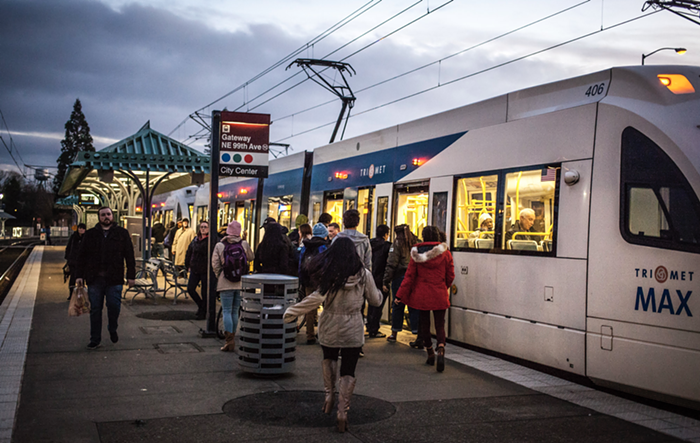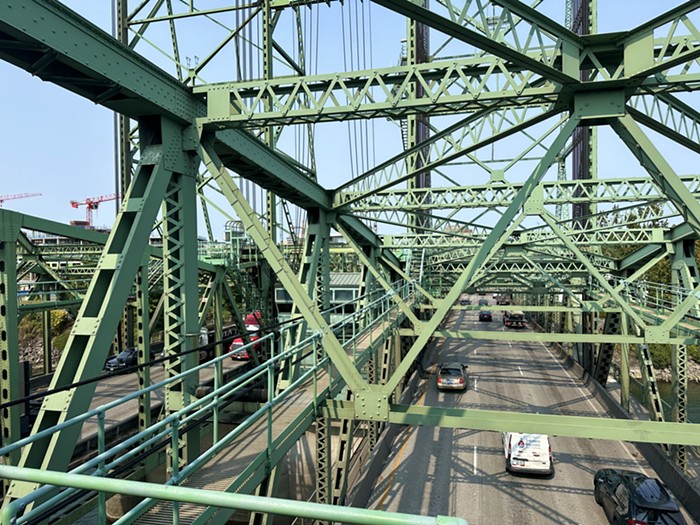Portland is a city that takes smart transportation seriously. Our light rail system is decades ahead of other west coast cities, our bus system is ridden by downtown business people and low-income Eastsiders alike, transit is key both to our tourism and our identity as a city.
So why doesn't Portland have a single public transit advocacy group?
New York has Transportation Alternatives, Chicago has the Active Transportation Alliance, Seattle has Transportation Choices, but in Portland, the biggest alternative transportation group, the BTA, focuses exclusively on bikes. There's AORTA, but they're not very active anymore (the "about" section of their website, for example, just reads, "..."). Numerous attempts to start grassroots transit riders' unions have wound up with with depressing protests that look like this:

Wednesday's city hall rally against bus cuts brought out about 100 people (a bigger crowd than I've seen for any public transit activism in... forever) but it was organized by a dozen nonprofits that focus on social justice and equity issues, with transit as just a piece of their mission.
If public transit is so crucial both to Portland's function and ethos, shouldn't some group be able to organize thousands of people to holler at politicians and TriMet about the fourth service cut in 16 months?
Below the cut: I talk to smart people about this question. And get a couple good answers.
Planning Commissioner Chris Smith, who runs Portland Transport, points out that for three decades, people who were promoters of public transit in Portland were working side-by-side with TriMet to push the state and city for more funding. "Here in Portland, until recently, transit trips had been getting better and better. Everybody was pointed the same direction," says Smith. "It’s only been in the past couple years that the financials have stumbled and now disadvantaged communities, who are clearly getting the short end of the stick, are starting to get organized. When both the rail network and bus network were growing, no one got very angry. "
Smith also noted that cities like New York and Chicago have had a dedicated base of transit riders for generations, while Portland has only built up its system in the last 30 years.
Local Transportation for America organizer Chris Rall said it's hard to get mad at TriMet when the local cuts are part of a nationwide trend. "84 percent of public transportation agencies across the country are experiencing some sort of cut," says Rall. " It’s easy to look at the person closest to you and get angry at them "
And a good point from Mara Gross at Coalition for a Livable Future: It's hard to organize locally when the big problems lie at a federal level, with 80 percent of transportation funds going to roads and less than 20 percent to transit. "We’re known nationally for a city that focuses on multimodal transportation," says Gross. "On the other hand, I know there’s communities that are left out. "
Smith and others pointed to environmental justice group OPAL, which spearheaded the rally and is working on an investigation of bus stops city-wide as a likely up a comer. OPAL is just getting started in transit advocacy, but their research is focused on equity in transit—a cause that can rally support with social justice groups like Sisters of the Road and Jobs with Justice who already have thousands of supporters.


















